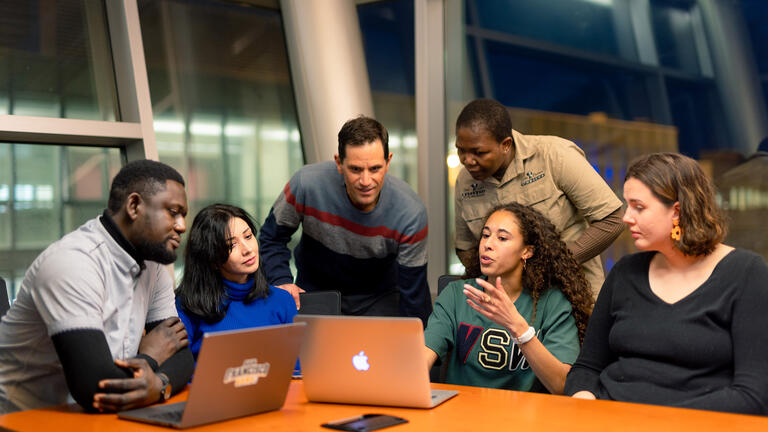
Program Overview
The Master of Arts in Migration Studies is a two-year, 31-unit, STEM-designated program that begins each fall. Come study with experts, network with colleagues, and work with government, nongovernmental organizations, and grassroots organizations. Complete a master’s thesis, applied project, or publishable article that speaks to your interests and career goals. Prepare to succeed in government agencies, policy think tanks, education, consulting firms, community-based nonprofits, advocacy, public interest, philanthropic organizations, and the private sector.
Immersive Learning
In the Master in Migration Studies program, you learn by doing, not just by listening. Hands-on experiences plus classroom learning help prepare you to succeed.
Take Classes That Fit Your Future
Build on the Master in Migration Studies core curriculum by taking courses from other USF graduate programs. Many migration students take courses (up to 6 units) offered in the following programs, among others:
-
Explore cultures and social movements. Do internships and fieldwork. Tackle local issues on a global scale. Seek justice for all.
-
Join the Bay Area's dynamic culture of grassroots organizing and advocacy. Develop community-driven public policy for more equitable cities and regions. Prepare for leadership roles in community organizing, public service, and political advocacy.
FAQ
-
A master's dissertation is not required. Instead we require either an article that is deemed publishable by a faculty committee or an applied project. Students do not need to have an article published. The committee determines if it's worthy of publication. Each semester students take a one-unit research seminar. The seminar is designed to help students with the steps of writing a scholarly article about migration based on their own interests and research or an applied project based on the needs of a migrant organization or government agency.
-
No. While we encourage students to take advantage of this opportunity, an identical curriculum is provided at both USF and Ibero during the second semester.
-
The only additional costs in Mexico are airfare and housing. The cost of living (housing, food, etc.) will be much less in Mexico than in San Francisco.
-
The program only begins in the fall.
-
Our classes are offered in the late afternoon and evenings, making it possible to work and complete the program. If you are working and planning to spend second semester in Mexico City, we recommend that you speak to your employer as soon as possible.
-
Approximately 12-15 students per cohort.